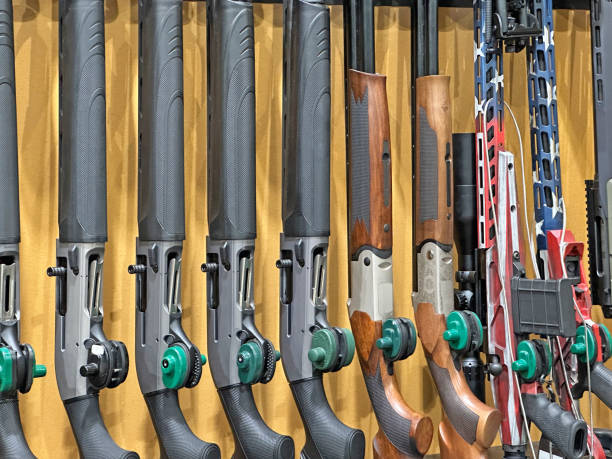Arms Acquisition: The Intricacies of Accessing Firearms in Today’s Society

In a world where personal security, sporting interests, and cultural norms intersect, the pursuit of firearms for sale has become a significant aspect of modern society. However, beyond the simple act of purchase lies a complex web of legal, social, and ethical considerations that must be carefully navigated. Let’s embark on an exploration of the multifaceted journey of acquiring firearms in today’s world.
The Marketplace Dynamics
The market for firearms is as diverse as the reasons driving individuals to seek them. From sleek handguns designed for self-defense to precision rifles crafted for marksmanship competitions, the options available cater to a wide spectrum of needs and preferences. Whether one is a seasoned enthusiast, a novice shooter, or someone seeking protection, the market offers a plethora of choices, each with its own set of features, capabilities, and applications.
Regulatory Realities
Despite the diversity in the marketplace, the acquisition of firearms is governed by a complex web of regulations and laws. In the United States, federal statutes such as the Gun Control Act of 1968 and the National Firearms Act of 1934 provide the overarching legal framework for firearm sales and ownership. These laws establish guidelines for background checks, prohibited categories of buyers, and the regulation of certain types of firearms.
At the state level, additional regulations may apply, further shaping the landscape of firearm acquisition. Some states impose stricter requirements for purchase and ownership, including waiting periods, additional background checks, and limitations on magazine capacity. Others adopt more permissive stances, allowing for easier access to firearms with fewer restrictions.
Embracing Responsibility
Amidst the legal complexities, responsible firearm ownership emerges as a guiding principle. Beyond mere compliance with laws and regulations, responsible gun owners prioritize safety, education, and ethical considerations. Comprehensive training in firearm safety and proficiency equips individuals with the knowledge and skills necessary to handle firearms safely and responsibly.
Secure storage practices, regular maintenance, and adherence to safety protocols are fundamental aspects of responsible firearm ownership. Moreover, ethical considerations guide responsible gun owners in their interactions with firearms, emphasizing the importance of using firearms only for lawful purposes and promoting a culture of safety and respect within the community.
Conclusion: Navigating the Path Forward
As we navigate the landscape of guns for sale, we must recognize the complexities inherent in the acquisition and ownership of firearms. By understanding the legal frameworks, embracing responsibility, and prioritizing safety and ethical considerations, individuals can navigate this terrain with confidence and integrity. Ultimately, it is through informed choices and responsible actions that we can foster a society where firearms are regarded as tools to be wielded with care and respect, rather than sources of controversy or harm.
Setting Up Mega888 on Your Mobile Device
July 3, 2024Essential Tools for Drywall Patch Repair
May 24, 2024
Comments are closed.
More Stories
-
How to Plan the Perfect Trip
April 27, 2022 -
Travel Essentials for the Post COVID World
May 2, 2022
Travel Guide
-
Setting Up Mega888 on Your Mobile Device
July 3, 2024
Categories
Our Love
-
Setting Up Mega888 on Your Mobile Device
July 3, 2024





